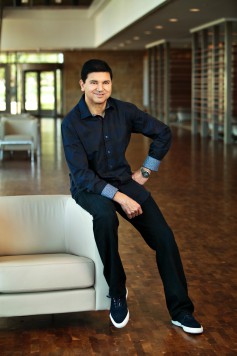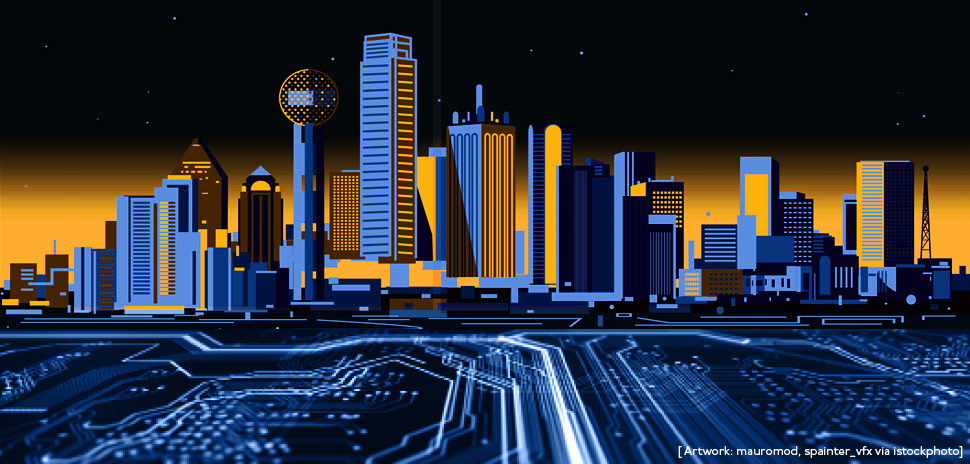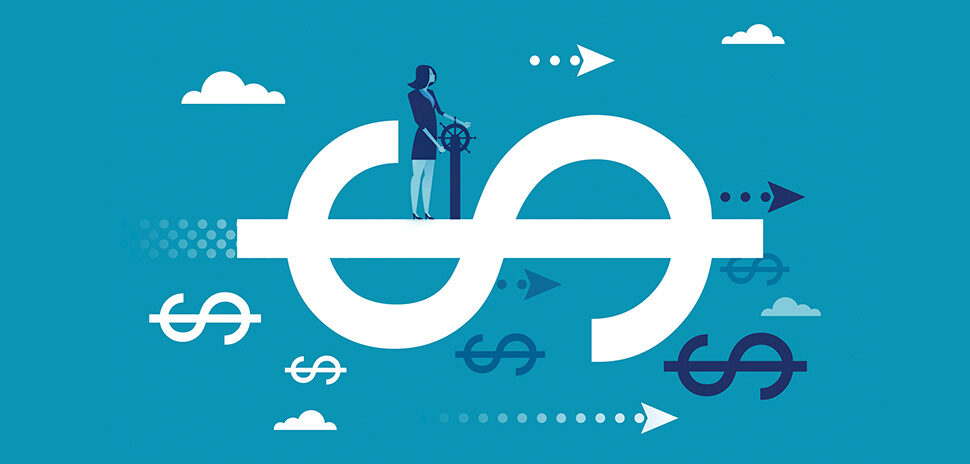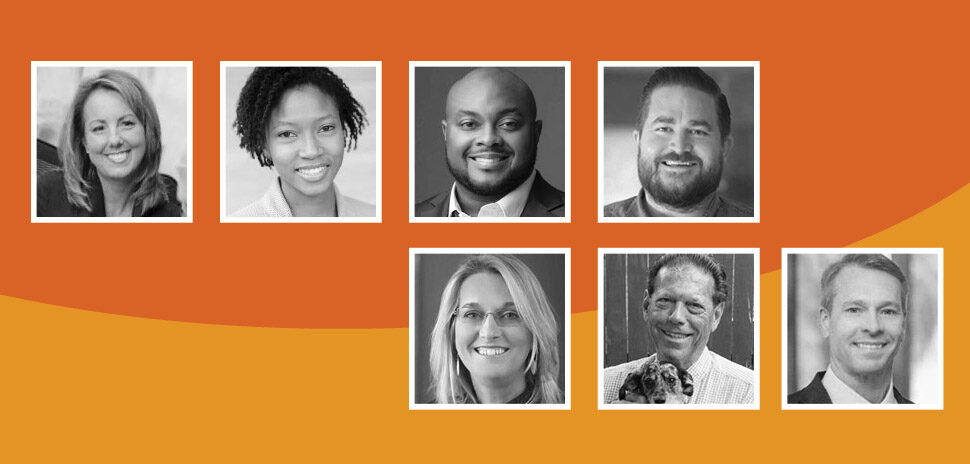A new survey by Capital One shows that residents are becoming increasingly more confident about the perception that Dallas-Fort Worth is becoming the hub for technology in the country. But, in order to push the region across the threshold as the place where tech companies want to locate and hire local workers, a unified community effort is needed—from within the region.
“We as a region don’t want to be left behind,” Sanjiv Yajnik, President of Financial Services within Capital One, says. “We need to understand that we are the place people feel good about. And from the outside in, when people think about Dallas, what do they think about?”

Sanjiv Yajnik, President of Financial Services, Capital One
Capital One’s 2018 Future Edge DFW survey shows that residents are overwhelmingly in favor of the region becoming the go-to spot for technology. So — what now?
Capital One has community partners that leverage ways to lean into these ideas such as STEM academies, tech training, workforce readiness, coding programs, and internships.
An important point Yajnik makes is about STEM versus STEAM. To him, the ‘A’ — which stands for arts — is vital to creating an area centered around technology. He says top talent wants to be close to the arts, and points to SXSW in Austin. Dallas has the means and the space, but houses nothing of this magnitude.
“This is about all of us in the region.”
But, in order to become “known” for something, the effort has to be a cooperative enterprise—and that goes beyond Capital One.
“This is not about any one company or any one thing,” Yajnik says. “This is about all of us in the region.”
Yajnik says to create a hub, it has to be a collective effort by an ecosystem of companies. And, if the nation is going to see DFW in this way, that viewpoint has to start from within.
“There’s no invisible hand at work that swoops in and invests in companies—it is us.”
Sanjiv Yajnik
“We want our community to be the most vibrant, and we want it to be the best,” Yajnik says. “And that only happens from within. It doesn’t happen with some other person coming in and doing something. Unlike what other people may feel, there’s no invisible hand at work that swoops in and invests in companies—it is us.”
Yajnik says you can’t have a vibrant community without vibrant businesses doing good for the sake of benefiting the area. So now that the survey proves big things are happening, it’s up to those already living in the area to do something about it. Yajnik thinks the main question is what part we can all play in taking the region forward.
“Despite all of this, there’s more work to be done. Please don’t take these numbers and say, ‘Okay, work done,'” he says. “We’re just starting.”
READ NEXT Takeaways: Capital One’s Reimagine Communities Symposium
Yajnik says it’s important to train those that might not have access to technological tools. He asked, “If there is this great economic opportunity, what about the children in need and the people that can easily be left behind?”
The key is to encourage every group to change the way they think about and understand technology. If DFW is known for its talent, Yajnik thinks “it’s beneficial to all of us” in the region.
Survey shows Dallas could become the tech hub
At the company’s Reimagine Communities Symposium today, Capital One released the results of its 2018 Future Edge DFW survey, and the overall consensus supports the claim that the Dallas region could become a tech hot spot.
For starters, the survey shows that four out of five Dallas-Fort Worth residents believe the area is a “great place for tech-related jobs and innovation.” This year shows that 65 percent of locals believe major tech companies will increase their presence here over the next decade—a whopping 30 percent increase from the 2016 version of the study. And in the next two years, the majority of local millennials (71 percent) believe they’ll start their own technology-centric career, as compared to 64 percent of millennials nationwide.

Source: Capital One Future Edge DFW Survey
“People think about technology as something that’s driving automation, or [something] driving digital,” Yajnik says. “It’s actually changing every aspect of our lives.”

Source: Capital One Future Edge DFW Survey
And the survey backs that up. The top factors DFW residents attributed to the area’s growing success in innovation were the presence of tech companies, networking opportunities, and the general quality of life. And, overall, the study shows that the people here are pretty optimistic about where they live: 92 percent of residents expected economic development would continue in the next 10 years (versus only 85 percent nationally).

Source: Capital One Future Edge DFW Survey
The ins and outs of the Capital One Future Edge DFW Survey
The national initiative launched in 2015, with Capital One pledging $150 million over the course of five years to better bolster the ever-changing digitally driven economy. Future Edge DFW, specifically, represents the company’s commitment to make North Texas this ‘technology hub’ filled with the leaders of tomorrow.
The financial holding company says the survey itself is just another way to prepare DFW for tomorrow, today. The intent is to compare local viewpoints with those of Americans across the country and see how North Texas technologically stacks up. Yajnik says the goal was to go beyond seeing what people were feeling, but see what Capital One could do about it.
As mentioned, the 2016 predecessor to this year’s survey was created in collaboration with not-for-profit Institute for the Future (IFTF). It explored DFW’s future in terms of technology and financial innovations, and the workforce of tomorrow. In 2017, a comprehensive study called DFW 2026: Igniting Economic and Cultural Prosperity in North Texas combined the quantitative survey and qualitative IFTF research.
For this year’s Future Edge study, Wakefield Research conducted interviews among 1,000 nationally representative U.S. adults, and 500 Dallas-Fort Worth area adults via email or online. Capital One says the results of any sample are subject to sampling variation.
Updated at 2:49 p.m. on October 3, 2018.
![]()
Get on the list.
Dallas Innovates, every day.
Sign up to keep your eye on what’s new and next in Dallas-Fort Worth, every day.


































































